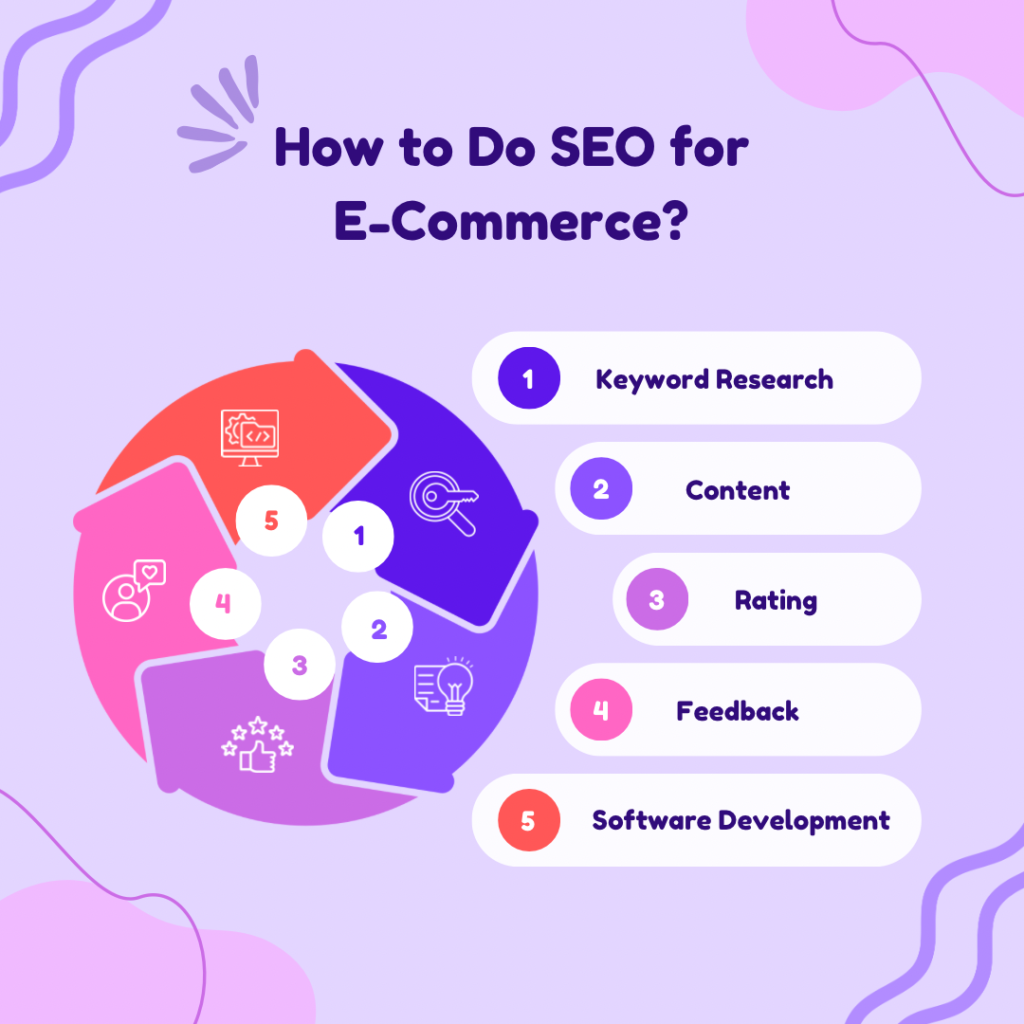Importance of SEO for a website:
- Increased Visibility: SEO helps improve a website’s ranking in search results, making it more visible to potential visitors. Websites that appear on the first page of search results are more likely to receive clicks and traffic.
- Targeted Traffic: SEO focuses on optimizing for specific keywords and phrases relevant to a website’s content. This means the traffic coming from search engines is more targeted and likely to be interested in the website’s offerings.
- Credibility and Trust: Websites that rank higher in search results are often perceived as more credible and trustworthy by users. People tend to trust search engines, so appearing higher in rankings can positively impact a website’s reputation.
- User Experience: SEO involves improving the overall user experience of a website, such as page speed, mobile-friendliness, and easy navigation. A better user experience leads to higher engagement and increased chances of conversions.
- Cost-Effectiveness: Compared to paid advertising, SEO provides a cost-effective way to attract organic traffic. Once a website ranks well for relevant keywords, it can maintain its position without ongoing advertising costs.
- Long-Term Strategy: While SEO may take time to show significant results, its effects are long-lasting. A well-optimized website can continue to attract organic traffic over an extended period.
- Competitive Advantage: In today’s competitive online landscape, SEO can provide a competitive edge. Websites that invest in SEO are more likely to outrank competitors and capture a larger share of the market.
- Local Search Optimization: For businesses with a physical presence, local SEO helps attract customers from specific geographic areas, increasing foot traffic to brick-and-mortar locations.
- Analytics and Insights: SEO tools provide valuable data and insights about website performance, user behavior, and search trends. This information can be used to refine marketing strategies and optimize the website further.
In summary, SEO is crucial for a website’s success because it drives organic traffic, enhances user experience, builds credibility, and offers a cost-effective long-term marketing strategy. By implementing effective SEO practices, websites can reach their target audience, generate leads, and achieve their business goals.
Top 10 ways to SEO
Here are the top 10 ways to improve the SEO (Search Engine Optimization) of your website:
- High-Quality Content: Create valuable, original, and engaging content that caters to your target audience. Content that provides useful information and solves problems is more likely to rank well in search engines.
- Keyword Research: Conduct thorough keyword research to identify relevant and high-traffic keywords for your content. Use these keywords strategically in your titles, headings, and throughout your content.
- On-Page Optimization: Optimize your website’s meta tags, including meta titles and meta descriptions, to provide clear and concise information to search engines and users about your content.
- Mobile-Friendly Design: Ensure your website is mobile-friendly, as more users are accessing the internet on mobile devices. Responsive design improves user experience and can positively impact search rankings.
- Page Speed: Optimize your website’s loading speed as it directly influences user experience and search engine rankings. Compress images, leverage browser caching, and use content delivery networks (CDNs) to improve page loading times.
- Link Building: Build high-quality backlinks from authoritative websites in your niche. Quality backlinks signal to search engines that your website is trustworthy and relevant.
- User Experience: Focus on providing an excellent user experience. Make navigation intuitive, use clear calls-to-action, and ensure the website is easy to use and understand.
- Social Media Presence: Utilize social media to share your content and engage with your audience. Social signals can indirectly impact search rankings.
- Regular Updates: Keep your website updated with fresh and relevant content. Regularly update and optimize older content to ensure it stays relevant and useful.
- Monitor and Analyze: Use web analytics tools to monitor your website’s performance and SEO efforts. Analyze the data to identify areas of improvement and refine your SEO strategy accordingly.
Remember that SEO is an ongoing process, and it may take time to see significant improvements. Stay consistent, focus on providing value to your audience, and adapt your SEO strategies as search engine algorithms evolve.
Keywords:
SEO, Search Engine Optimization, website, visibility, ranking, search engine results pages, organic traffic, targeted traffic, credibility, trust, user experience, cost-effectiveness, long-term strategy, competitive advantage, local search optimization, analytics, insights, marketing strategy, business goals.


